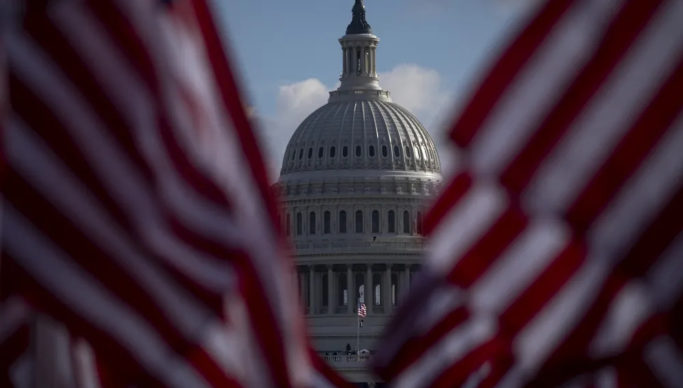
How Opponents of Christian Nationalism are Mobilizing and Uniting Against its Rise
- By Erick Schenkel --
- 15 Aug 2023 --
As Christian nationalism continues to gather momentum in the U.S., numerous Christian and secular groups are intensifying their endeavors to counter the ideology and its impact on national politics.
In May 2023, the Kairos Center for Religions, Rights and Social Justice, a nationwide anti-poverty organization headquartered at the Union Theological Seminary in New York City, collaborated with the nonprofit MoveOn Education Fund, to release a comprehensive 75-page report on white Christian nationalism.
The term characterizes the belief that the U.S. is fundamentally a Christian nation that should be administered according to Christian values.
Titled “All of US: Organizing to Counter White Christian Nationalism and Build a Pro-Democracy Society,” the report cautioned against the danger that Christian nationalism presents to both religious communities and democracy within the U.S.
It is the latest scholarly effort to confront Christian nationalism, which the study defines as a reactionary political movement that “cloaks itself in the garb of Christianity,” while exploiting history, identity, and theology to achieve minority-focused advantages.
“They pursue this political agenda through the attempted capture of all spheres of society—government, culture, media, entertainment, family, religion and business,” adds the report.
Five months before the report was issued, Amanda Tyler, executive director of the Washington, D.C.-based Baptist Joint Committee for Religious Liberty (BJC), addressed the threat posed by white Christian nationalism in a testimony before a subcommittee of the U.S. Congress investigating the well-known January 6, 2021 mob attack on the Capitol.
“One aspect of the insurrection that has not gotten much attention is the role of Christian nationalism in uniting the rioters and justifying the violence,” Tyler said at the hearing, adding: “It was disorienting to see the seat of American democracy under attack by people brandishing Christian imagery and language while perpetuating violence.”
In February 2022, the Baptist Joint Committee for Religious Liberty released a 63-page report on the January 6 insurrection in conjunction with the Freedom From Religion Foundation (FFRF), a Madison, Wisconsin-based organization dedicated to promoting the constitutional principle of separation of state and church.
The report outlines instances of Christian nationalist language and symbols that appeared during several events preceding the insurrection, including the November 2020 “Million MAGA March” in Washington, D.C., which drew supporters of former President Donald Trump as well as far-right extremists and conspiracy theorists.
At those gatherings and during the insurrection itself, symbols and references associated with Christian nationalism were widespread, according to the BJC-FFRF report.
In September 2022, at a hearing on Capitol Hill, a collective of interfaith activists and religious proponents briefed legislators for an hour about the perceived, distinct dangers presented by Christian nationalism.
Several speakers highlighted the impact of Christian nationalism, particularly within the white evangelical community. They referenced a 2022 survey indicating that three-quarters of Republican evangelicals endorse the idea of the federal government officially designating the nation as a Christian country.
Conducted by the Public Religion Research Institute (PRRI), an apolitical nonprofit devoted to independent research on the interstices of religion, culture and public policy, and the Brookings Institution, a nonprofit public policy organization based in Washington, D.C., the study offered a somber observation:
“Increasingly, the major battle lines of the culture war are being drawn between a right animated by a Christian nationalist worldview and Americans who embrace the country’s growing racial and religious diversity.”



















